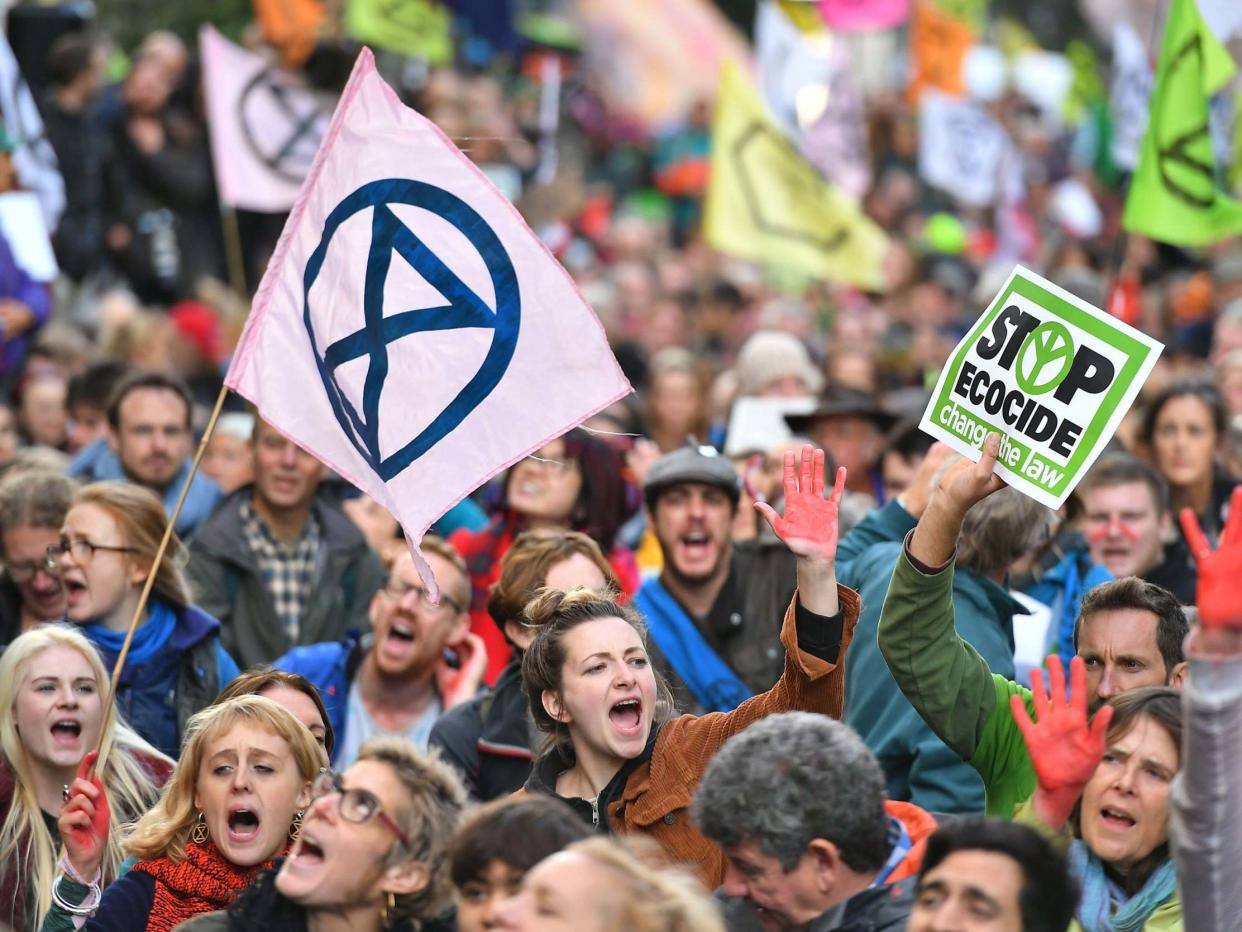General election: Voters care more about the environment than the economy, poll finds

Voters are more concerned about the environment ahead of this election than at any time in the past, according to a poll, ranking it above the economy, education and immigration.
The findings will put pressure on political parties to toughen their policies on pollution and climate change as the issue ranks only behind Brexit, health and crime on the public’s list of priorities, according to the Ipsos Mori survey.
The environment is listed as being more important than at any time since 1990. Pollsters said the consistency with which it is mentioned by voters means it now matters more than ever before.
When asked to list what they think are the biggest issues facing Britain, more than one in five voters (21 per cent) mention the environment and pollution unprompted – up from just 2 per cent in 2012.
The figure rises to 29 per cent among 18- to 24-year-olds, although more than one in four of 45- to 54-year-olds also raise it as an issue.
The findings suggest that the issues raised by the Extinction Rebellion protests and dire warnings about pollution and global warming have affected voters ahead of the election.
Brexit is still by far the biggest issue in voters’ minds, with 63 per cent mentioning it as one of the major challenges facing Britain. The NHS is second, followed by crime and the environment.
Education (18 per cent), poverty and inequality (15 per cent) and housing (14 per cent) are all mentioned less often, while 12 per cent of voters mentioned the economy and 11 per cent mentioned immigration.
When Ipsos Mori asked specifically which issues will affect how people vote in the upcoming election, 27 per cent mentioned the environment, meaning it is behind Brexit, the NHS, crime and care for the elderly, but ahead of issues such as immigration, education, pensions and welfare.
Ben Page, chief executive of Ipsos Mori, told The Independent: “Public anxiety about the environment and climate change has been rising over the last decade, with 85 per sent of us now saying it’s a concern – up from 60 per cent in 2013. The environment is now the fifth most important issue voters say matter in the election – more important than immigration or poverty and inequality.
“It means that we will hear more about green deals and other low-carbon initiatives before 12 December. The main thing here, however, may be the need to ban things rather than simply tax them – the public sees bans as fairer.”
The Ipsos finding was confirmed by another new poll which found that seven in 10 young people say environmental concerns will influence how they vote in the 12 December poll.
The Populus survey for the RSA found that 70 per cent of 18-24 year olds say it will be a factor when they cast their vote.
It also revealed widespread anger at the government, with 62 per cent of people agreeing with the statement “people like me get little or no help from the government”.
Both of the main political parties have sought to make climate issues a central plank of their election campaigns.
Labour has promised to usher in a “green industrial revolution” and launch a £250bn “Green Transformation Fund” for spending on environmentally friendly policies such as retrofitting homes. Its annual conference in September also voted to adopt a policy of making the UK carbon neutral by 2030, although it is unclear whether this will be in the party’s manifesto following a backlash from some trade unions.
The Conservatives, meanwhile, have announced a moratorium on fracking and promised to invest in offshore wind farms.
Today, Jeremy Corbyn will use a speech at the Confederation of British Industry conference to announce that a Labour government would create 320,000 new apprenticeships designed to help the environment.
Under the plans, employers would have to earmark a quarter of the money they currently pay through the apprenticeship levy to apprenticeships in areas such as renewable energy, transport, sustainable construction and forestry.
“Labour’s green industrial revolution will be a central motor of the party’s plans to transform our country and economy, using public investment to create good, clean jobs, tackle the climate emergency and rebuild held-back towns, cities and communities.
“Climate apprenticeships will offer training to school leavers and workers looking to change jobs mid-career, creating the engineers, technicians and construction workers we need to transition to a green economy.”
Read more
Climate change poses unprecedented heath risk to children, study finds

 Yahoo News
Yahoo News 
